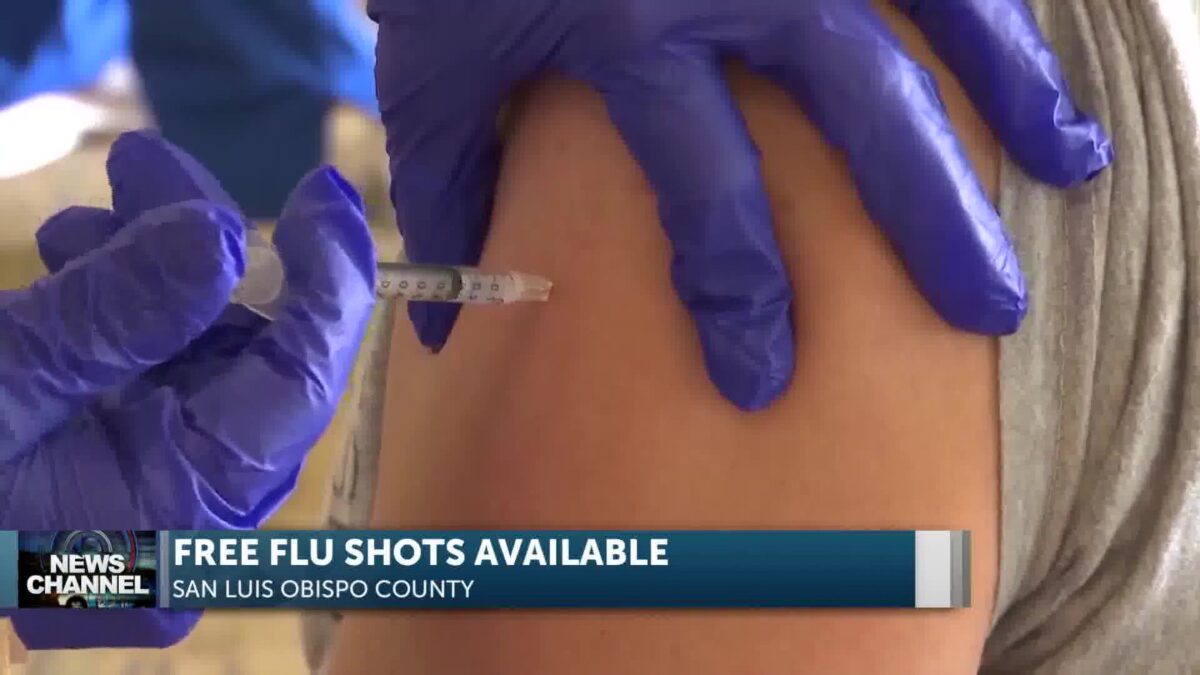CNN Newsource
By Tami Luhby, CNN
(CNN) — The federal government has shut down as congressional lawmakers remain at odds over funding the government beyond September 30.
Although Republicans control Capitol Hill and the White House, they need at least seven Democrats in the Senate to join them to pass a spending package under the chamber’s rules. Senate Minority Leader Chuck Schumer, however, is demanding any funding bill contain an extension of the enhanced Affordable Care Act premium subsidies, along with several other items, to get his party’s support. GOP leaders want an extension of funding for seven weeks, with additional money for security for the legislative, executive and judicial branches.
With the impasse unresolved, the government shutdown could be unlike any other in recent memory. While no two shutdowns are exactly the same, President Donald Trump and the White House Office of Management and Budget have already signaled that they are willing to use a totally different playbook — urging agencies to downsize workers in programs whose funding has lapsed and which don’t align with Trump’s priorities.
OMB Director Russell Vought on Tuesday said the government can cut jobs and programs, rather than just furlough workers during a shutdown.
“We have the authority to make permanent change to the bureaucracy here in government,” Vought said on Fox Business.
Trump is no stranger to government shutdowns. The most recent one occurred during his first term, starting in late December 2018 and lasting 35 days, the longest on record.
Here’s what we know about the government shutdown:
What is a government shutdown?
Congress must provide funding for many federal departments and functions every fiscal year, which begins on October 1. If lawmakers fail to pass a spending package for the full year or extend funding for a shorter period, known as a continuing resolution, then many agencies and activities must shutter until Congress appropriates more money.
Since lawmakers have yet to pass through both chambers any of the 12 appropriations bills that make up the federal discretionary spending budget, this government shutdown will be considered a full shutdown.
During prior impasses, Congress approved annual funding for certain agencies, which allowed them to continue operating while other federal departments went dark. That situation is known as a partial shutdown.
What is the shutdown deadline?
The shutdown began on October 1, first thing Wednesday morning, since Congress did not act before that.
What programs and payments will stop?
Every government shutdown differs somewhat, but typically functions that are critical to the protection of lives and property are deemed essential and remain open. Agencies file what are known as contingency plans that detail what operations will continue and how many employees will remain on the job, many of them without pay.
However, in an unusual move, OMB this time is not posting agencies’ shutdown contingency plans on its website. Instead, the plans are hosted only on each agency’s site — making it harder to assess how the Trump administration will handle the shutdown and which activities it will deem essential.
The US Food and Drug Administration’s ability to provide public health oversight will be harmed in a shutdown, according to an updated Department of Health and Human Services’ contingency plan. The agency will be limited in the inspections it can conduct, though it will still respond to emergencies.
“In the event of a lapse in appropriations, FDA’s ability to protect and promote public health and safety would be significantly impacted, with many activities delayed or paused,” the plan said.
Meanwhile, the Department of Education said it will furlough most of its staffers in a shutdown, though it will continue to dole out Pell Grants and federal student loans and keep making Title I and IDEA grant funding available. States, schools and others can still access the billions of dollars in awards the department made over the summer.
On the other hand, most Department of Homeland Security personnel will continue working. Most employees in Customs and Border Patrol will be retained, as well as those who work for Immigration and Customs Enforcement, the Transportation Security Administration, the Secret Service, Citizenship and Immigration Services and the Federal Emergency Management Agency.
But the Washington, DC, court system said it will not issue marriage certificates or perform wedding ceremonies. And the National Flood Insurance Program can’t issue new policies, potentially snagging the closing of home sales.
Previous shutdowns canceled immigration hearings; and delayed some federal lending to homebuyers and small businesses, among other impacts.
In the most recent prior shutdown, students had trouble getting needed tax documents from the Internal Revenue Service to get financial aid for the spring semester, and the US Department of Agriculture warned that it could only guarantee to provide food stamp benefits through February.
Federal funding for WIC, the food assistance program for low-income women, infants and young children, could run out within one to two weeks if Congress doesn’t allocate more money, according to the National WIC Association.
The US Department of Agriculture told state agencies that due to the lapse in funding, they will not receive their quarterly allocation of fiscal year 2026 money for WIC.
Some government functions can continue – at least for a certain period of time – if they are funded through fees or other types of appropriations. For instance, the Internal Revenue Service said it can use some of the funding it received from the Inflation Reduction Act to keep all of its roughly 74,300 staffers on the job — as it said it would do previously when shutdowns loomed. The IRS is currently in the midst of putting into place dozens of tax law changes contained in the Republicans’ One Big Beautiful Bill Act, including some that take effect this year.
It’s likely that immigration, border patrol and defense activities funded through the GOP’s tax and spending package, which Trump signed into law in July, will continue.
“Thankfully, H.R. 1 provided ample resources to ensure that many core Trump Administration priorities will continue uninterrupted,” OMB wrote in its memo to agencies about preparing mass layoff plans, referring to the president’s domestic agenda package.
The Defense Department said in its contingency plan that it considers its highest priorities to be securing the southern border, Middle East operations, the Golden Dome missile defense system, among others.
Agencies and administrations have some amount of choice in which services they deem essential, said Molly Reynolds, interim director of the governance studies program at the Brookings Institution.
In Trump’s first term, Reynolds noted that the administration took some measures to make the shutdown less painful, such as allowing the IRS to process tax refunds — a departure from prior shutdowns.
But that may not be the case this year.
“The OMB memo threatening wide-scale federal layoffs if there is a shutdown suggests that this time around, they might be looking to make the shutdown more painful,” she said.
Will Social Security be affected?
Social Security payments to senior citizens, people with disabilities and other Americans will not be interrupted, according to the Social Security Administration’s updated contingency plan.
“In the event of a lapse in appropriation, SSA will follow the contingency plan for continued activities, and Social Security beneficiaries would continue receiving their Social Security, Social Security Disability Insurance and SSI (Supplemental Security Income) payments,” the agency told CNN.
Also, the unemployed will continue to receive their jobless benefits, as long as state agencies have administrative funding to process them, according to the Department of Labor.
Medicare and Medicaid payments will also continue to be distributed, the Department of Health and Human Services said in its contingency plan.
Will national parks stay open?
The impact of shutdowns on the 400-plus national park sites has differed greatly in recent shutdowns.
“National parks remain as accessible as possible during the federal government shutdown. However, some services may be limited or unavailable,” the National Park Service said in a banner on its website.
Park roads, lookouts, trails and open-air memorials will generally remain accessible to visitors, according to the service’s contingency plan. At the just over 100 parks that charge entrance fees, that money can go toward maintaining basic visitor services, including restrooms, trash collection and campground operations.
In 2013, an estimated 8 million recreation visits and $414 million were lost during the 16-day shutdown, according to the National Parks Conservation Association, citing National Park Service data. During the most recent shutdown in 2019, many parks remained open though no visitor services were provided. The Park Service lost $400,000 a day from missed entrance fee revenue, according to the association’s estimates. What’s more, park visitors would have typically spent $20 million on an average January day in nearby communities.
States have also stepped in to keep some national parks open using their own funds. When a shutdown loomed in the fall of 2023, Utah said it would keep the Mighty 5 parks – Arches, Bryce Canyon, Canyonlands, Capitol Reef and Zion – open, while Arizona planned to keep the Grand Canyon operational. Colorado also said it would also keep its four national parks and other federal lands open.
This time, Arizona said it does not have the funds to keep its national parks open, while New York said it would not keep the Statue of Liberty operating during a shutdown. The Interior Department then told CNN that the administration would keep the statue — as well as Ellis Island — open. But Colorado and Utah said their national parks will remain open.
Meanwhile, the Smithsonian said its museums, research centers and the National Zoo will remain open through at least October 6.
What’s the impact on airline travel?
Air traffic controllers and Transportation Security Administration officers are typically deemed essential and must remain on the job, though they are not paid. But staffing shortages during past shutdowns have snarled flights.
Critical support staff would be furloughed and vital support programs would be suspended in a shutdown, the National Air Traffic Controllers Association said in a statement. That would make it more difficult for air traffic controllers and other aviation safety workers to operate at full capability.
“In a time when aviation safety is under heightened public concern, a government shutdown would significantly add to the distractions our members must manage on the job every day,” Nick Daniels, the union’s president, said.
The decision by 10 air traffic controllers to stay home in January 2019 helped end that shutdown. Their absence temporarily shut down travel at New York’s LaGuardia airport and caused delays at other major hubs, including in New Jersey, Philadelphia and Atlanta, driving Trump to agree to a temporary government funding measure.
Is USPS affected by the government shutdown?
The mail will still be delivered and post offices will remain open during the shutdown.
“Because we are an independent entity that is generally funded through the sale of our products and services, and not by tax dollars, our services will not be impacted by a government shutdown,” the US Postal Service said in a statement.
How about the impact on federal workers?
Federal workers bear the brunt of government shutdowns. Some are furloughed, while others are considered essential and have to continue working. But many don’t get paid until the impasse ends — though they may not feel an immediate impact since many won’t receive their pay for October until later in the month.
Many federal employees won’t notice the pause in pay until the end of next week, when the next paychecks for a large share of staffers are scheduled to be distributed for the pay period ending October 4. Their checks will be a little lighter since they won’t get compensated for the first few days of the month, if the shutdown is still in effect. After that, they won’t receive any pay until Congress approves a new spending package.
In March, the last time a federal government shutdown loomed before being averted, more than 1.4 million employees were deemed essential, according to Rachel Snyderman, managing director of economic policy at the Bipartisan Policy Center. About 750,000 of them would have continued to be paid since their salaries were funded through other sources.
Another nearly 900,000 workers would have been furloughed without pay. (Snyderman noted that the estimates did not include the layoffs and departures that occurred in the early weeks of the Trump administration.)
The Defense Department informed active duty and reserve military members, as well as civilian employees, in late September that they will not be paid after September 30 until Congress approves funding for the agency, according to a memo viewed by CNN. Active duty members will have to continue to report for work.
Also, judiciary officials warned in late September that federal courts could be affected by a shutdown within days, much sooner than in previous occurrences, because of tight budgets. While judges and Supreme Court justices would continue to be paid, many other judicial employees would not.
Federal workers are guaranteed to receive their back pay after the impasse is resolved. However, the same is not true for federal contractors who may be furloughed or temporarily laid off by their employers during a shutdown.
Will services for veterans be affected?
Medical care and critical services for veterans will not be interrupted during a government shutdown, the Department of Veterans Affairs said in its contingency plan. This includes suicide prevention programs, homelessness programs, the Veterans Crisis Line and caregiver support.
The agency will also keep processing and paying claims for education benefits, disability compensation and pensions, as well as loan guarantee programs. And its National Cemetery Administration will continue to inter veterans and eligible family members.
However, certain functions will cease until the impasse ends. The GI Bill Hotline will be suspended, as will assistance programs to help service members shift to civilian life. Also, the permanent installation of headstone and cemetery grounds maintenance will not occur until the shutdown is over.
What does a shutdown do to the economy?
Shutdowns can have real consequences for the economy since federal spending is delayed, and many federal workers pull back on their purchases while they aren’t receiving paychecks.
The five-week shutdown in 2018-2019 resulted in a $3 billion loss in economic growth that would not be recovered, according to a Congressional Budget Office estimate. It noted that some private sector businesses would never make up their lost income.
Also, because the IRS reduced its compliance activities during the shutdown, CBO estimated that tax revenues would be roughly $2 billion lower — much of which would not be recouped.
What’s more, it would become difficult to determine the health of the economy — which is currently in flux — during a shutdown. The Bureau of Labor Statistics will not issue any economic reports, including the closely watched monthly jobs report on October 3, during the shutdown, the Department of Labor said in its updated shutdown plan.
The impact stretches beyond the federal government.
The US Travel Association wrote a letter to congressional leaders in late September urging them to avoid a shutdown, which it said would result in flight delays, longer airport security lines and canceled trips.
“A shutdown is a wholly preventable blow to America’s travel economy — costing $1 billion every week — and affecting millions of travelers and businesses while placing unnecessary strain on an already overextended federal travel workforce,” wrote Geoff Freeman, the association’s CEO. “The consequences of inaction and immediate and severe.”
This story and headline have been updated with additional details.
The-CNN-Wire™ & © 2025 Cable News Network, Inc., a Warner Bros. Discovery Company. All rights reserved.
CNN’s John Fritze, Camila DeChalus and Annie Grayer contributed to this report.
Click here to follow the original article.



 Courtesy: City of El Centro
Courtesy: City of El Centro Courtesy: City of El Centro
Courtesy: City of El Centro Courtesy: City of El Centro
Courtesy: City of El Centro




